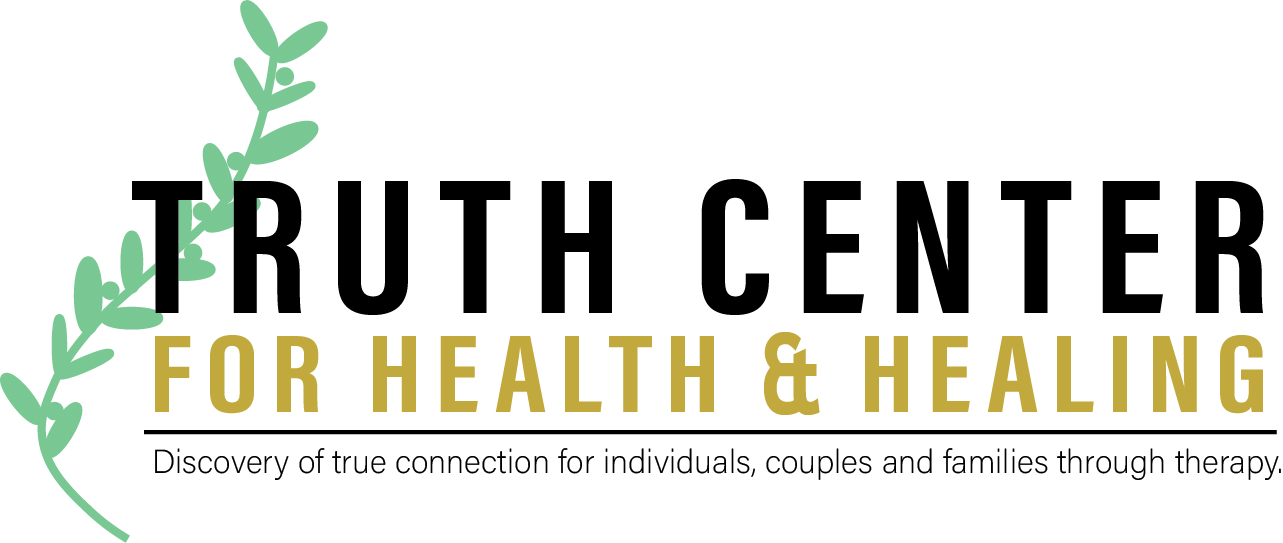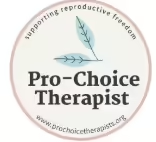Is it possible that somewhere between busy schedules, unspoken fears, and daily patterns, your ability to truly be heard (and to truly listen) got lost? That question has opened the door for many couples seeking something deeper than surface-level fixes. If your connection feels more strained than steady, or you find yourself going through the motions rather than growing together, it might be time to explore healthier ways of communicating.
At Truth Center for Health & Healing, couples counseling is an opportunity to reset, not because something is broken, but because you both deserve a more honest, empowered, and compassionate connection.
Why Communication Often Breaks Down and What It Costs
People mistake true communication as simple talking. It’s about being understood and also making space to understand. When life gets busy, between work demands, kids, past hurts, the small fissures in how partners speak and listen can grow. Misinterpretation, defensiveness, resentment: these don’t happen overnight. They build over time when safety in communication erodes. Couples counseling helps restore that safety by creating a structured space where each partner can explore underlying emotions, attachment needs, and interaction patterns without guilt or blame.
As professionals, we know that challenges like culture, race, identity, and past trauma influence how couples relate. A conversation that feels minor to one partner might carry deep significance to the other. Without openness to explore these layers, communication stays shallow or reactive. Through culturally responsive and systemically informed therapy, couples can begin to understand one another in new ways—building empathy and reclaiming voice.
The cost of unresolved communication is more than tension. It’s emotional distance, lost intimacy, and a sense of unmet needs. Yet couples counseling isn’t about assigning fault. It’s about learning skills that interrupt harmful patterns and restoring trust, safety, and collaboration. Statistics show that 60 to 80 percent of couples who engage in counseling experience significant improvement. It’s not a guarantee, but counseling for couples near Media, PA and beyond is a proven path toward more meaningful connection.
Key Communication Strategies Explored in Couples Counseling
Here at Truth Center we often use Emotionally Focused Therapy (EFT), which helps couples identify negative interaction cycles, access underlying emotions, and restructure patterns toward secure attachment. Here are some core techniques we teach:
- Reflective Listening: One partner speaks while the other listens without interruption. Then the listener reflects back what they heard, both content and emotion, before responding. This helps build mutual validation.
- I‑Statements: Expressing feelings and needs starting with “I feel …” rather than “You always …” reduces defensiveness and invites empathy.
- Time‑outs with Return: When a conversation becomes heated, couples can pause with an agreement to return after cooling off. This preserves respect and prevents hurtful escalation.
- Mapping Needs Together: Couples identify each other’s emotional needs and create daily rituals of response, such as checking in or offering reassurance.
These strategies can feel awkward or forced at first, but as they become habitual, couples often report greater ease in navigating emotional conversations. The structure creates psychological safety. Partners feel seen, heard, and less judged. Over time, this safety reduces tension and builds intimacy rather than tearing it down.
In a culturally sensitive setting, therapists also help couples explore how differences in background or communication style may stem from broader cultural experiences. For example, one partner may come from a family where direct expression felt unsafe, while the other grew up in a household that celebrated verbal openness. Recognizing these dynamics helps couples approach each other with curiosity rather than frustration.
Finally, therapists support couples in replacing automatic emotional reactions with deliberate responses. That shift is often transformative. Emotional triggers become invitations to deepen understanding rather than points of conflict. That’s how communication becomes not just functional but generative.
How a Typical Counseling Session Unfolds
A couples session begins with creating a safe container. Both partners share what brings them, what they hope to gain, and how their relationship feels now. The therapist listens deeply, holds space for each voice, and begins to map the couple’s interaction patterns.
Early sessions often involve exploring each partner’s individual story—how childhood, family culture, and past trauma shape how they approach conflict and connection. These insights inform tailored goals: maybe one partner needs help expressing vulnerability, while the other wants tools for responding with calm rather than defensiveness.
As therapy progresses, couples practice in-session exercises like reflective listening or emotion mapping. They learn to identify emotional triggers, express their needs assertively, and respond with empathy. Over time, these sessions shift from anxiety‑driven conflict to curiosity‑driven discovery about one another’s inner world.
Couples often remark how surprising it is to realize how little they truly know what their partner’s needs or fears are. Therapy helps unpack assumptions and unspoken expectations. What seemed like nagging or criticism can reveal deeper longing or unsaid worry.
Another key phase focuses on reshaping interactions. When a hurtful pattern emerges, such as silent retreat or harsh criticism, the couple learns to pause, name the dynamic, and choose a different path. With therapist guidance, they practice responding with compassion or offering repair gestures instead of anger or withdrawal. These small shifts often create new cycles of trust and connection.
Toward the end of treatment, a qualified marriage counselor in Delaware County supports consolidation of gains and future planning. Couples explore how to respond if old patterns emerge, how to maintain open communication, and how to continue growing together. The goal isn’t perfection but sustained intention. Many couples report feeling more resilient and present in their relationship than they have in years.
Communication Tips You Can Begin Practicing Right Now
Reading about counseling is useful, but true, tangible change begins with small, everyday steps. Here are communication techniques you can begin using today:
- Check‑in Rituals: Spend five focused minutes each evening sharing how you’re feeling without interruption. This creates regular connection and prevents emotional drift.
- Request Not Demand: Use phrases like “Would you be willing…” instead of “You need to…” to soften the message and increase openness.
- Pause Before Reacting: When triggered, take three deep breaths before responding. It gives your brain space to choose empathy over reactivity.
- Appreciation Notes: Daily or weekly, share one thing you appreciated in your partner. Gratitude opens emotional muscles that conflict tends to close.
Practice brings confidence. The first few times these exercises may feel awkward or unnatural. Yet over time, they build trust and comfort. You may notice that conflicts become shorter, less dramatic, and more constructive. Communication becomes an avenue for connection, not just correction.
Incorporating these practices doesn’t require therapy sessions, but doing them alongside couples counseling amplifies their effect. At each session, our therapists explore how couples implemented skills that week, what felt helpful, and where they stumbled. This feedback loop refines the tools and makes them more intuitive.
Remember, communication isn’t a sprint. It’s a marathon. These tips help couples learn to stay curious instead of combative, responsive rather than reactive. They support relationship health in real time, far beyond the therapy room.
Healing Past Wounds to Enhance Communication
Many couples carry unspoken histories. Whether it’s painful family patterns or cultural shame, these leak into daily interactions. At Truth Center for Health & Healing, counselors guide couples to explore these histories through systemic and attachment‑based approaches. You might uncover why criticism triggers panic or why silence feels safe. By making these dynamics visible, couples can shift from defensiveness to empathy.
Couples learn tools for emotional transparency. One partner might practice naming “When I hear that tone, I hear judgment, and it triggers me. Would you help me understand?” The other partner learns to validate feelings, ask clarifying questions, and offer support, even if the emotional reaction feels unexpected. This level of emotional bravery transforms conflicts into opportunities to deepen trust.
By healing these patterns consciously, couples build emotional resilience. They begin to trust that even when pain shows up, they can handle it together. Communication becomes less about avoiding discomfort and more about moving through it with integrity and care.
This deeper exploration often reveals that what feels like an argument about chores or time is rooted in unmet needs for recognition or belonging. Therapy helps translate reactive words into core unmet needs. That clarity opens a new level of mutual respect.
Couples may use narrative techniques to reframe their conflict story. Instead of “We always fight when she’s tired,” they might reframe it to “When both of us are exhausted, we lose patience and retreat. We can choose to pause and reconnect instead.” This shift reframes blame into shared responsibility and possibility.
Ultimately, the goal is for each partner to become a safe haven for the other and someone who understands emotional triggers, responds with care, and stays engaged through confusion. That safety is the foundation of lasting emotional intimacy.
Table: Techniques & Benefits of Healthy Communication
| Technique/Tip | Benefit to Relationship | How It’s Used in Therapy or Daily Life |
| Reflective Listening | Builds empathy and validation | Practice in-session and during daily check-ins |
| I‑Statements | Reduces defensiveness | Frame feedback by sharing personal experience |
| Pausing & Returning | Prevents escalation and emotional overwhelm | Take a break mid-conflict and agree to resume later |
| Check‑in Rituals | Sustains connected emotional awareness | 5 minutes daily sharing of feelings without judgment |
| Exploring Cultural and Historical Patterns | Increases insight and reduces misinterpretation | Therapist-guided sessions exploring family/cultural context |
| Appreciation Practices | Strengthens positive connection and gratitude | Weekly appreciation sharing or notes |
What Makes Our Approach Stand Out?
Truth Center for Health & Healing offers therapy that is deeply informed by identity, culture, and systemic experience. Whether you’re in person in Wynnewood or connecting online, our approach honors your background, your lineage, and the community systems that shape how you relate.
Our couples therapy is guided by evidence-based modalities like Emotionally Focused Therapy and attachment-informed techniques that are proven to support lasting change. Our therapists bring warmth, cultural humility, and skilled guidance to support both partners equally.
We offer flexible scheduling, sliding-scale options, and accept many insurances to make access easier. Each session invites compassionate collaboration. You lead the process, and our therapists help you translate intention into practice, turning fragile patterns into fresh possibilities.
Taking the Next Step: What Couples Can Expect
If you’re wondering what it feels like to begin couples counseling, here’s what many couples experience:
- Initial Consultation: You begin with a free 15-minute call to see if a therapist feels like a good fit. You can share concerns and ask questions.
- First Sessions: Early work focuses on clarity about goals, exploring each person’s background, and mapping your interaction dynamics.
- Middle Phase: Couples practice techniques in sessions and at home—reflective listening, emotional expression, conflict resolution. You learn to shift behaviors and recognize patterns.
- Consolidation & Planning: Near the close of therapy, you build plans for future challenges, check how progress is feeling, and strengthen strategies for lasting change.
This process isn’t about fixating on a single moment—it’s about building lasting tools, deepening understanding, and cultivating emotional trust for the journey ahead.
Communication Is a Choice You Can Learn
Peaceful, clear communication doesn’t happen by accident. It thrives when couples choose to connect deeply, listen carefully, and speak their truth with courage and care. At Truth Center for Health & Healing, couples counseling is not framed as a bandage but as training for the heart. It’s an invitation to heal old wounds and step into relational freedom.
Whether you’re wrestling with conflict patterns, feeling distant, or simply want to grow closer, these tools and therapeutic approaches can help. You don’t need to have it all figured out before you come in. You only need to be willing to start. Healing and healthy communication are possible, and they can begin sooner than you think.If you’re ready to explore couples counseling that honors who you are and helps shape who you want to become, contact Truth Center for Health & Healing to schedule a consultation. Your relationship is worthy of this care.





